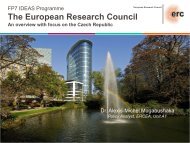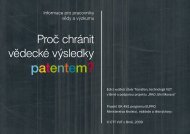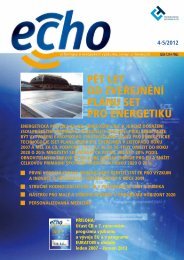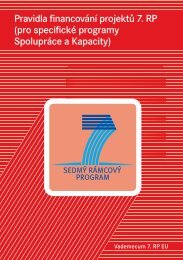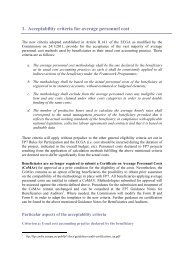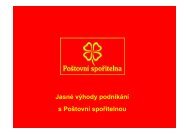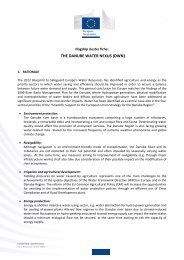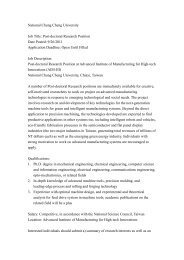Skills and Competencies from the Unilever Perspective
Skills and Competencies from the Unilever Perspective
Skills and Competencies from the Unilever Perspective
You also want an ePaper? Increase the reach of your titles
YUMPU automatically turns print PDFs into web optimized ePapers that Google loves.
Working in Industry:<br />
<strong>Skills</strong> <strong>and</strong> <strong>Competencies</strong> <strong>from</strong> <strong>the</strong><br />
<strong>Unilever</strong> <strong>Perspective</strong><br />
Hans-Gerd Janssen 1,2<br />
1.<br />
<strong>Unilever</strong> Research <strong>and</strong> Development Vlaardingen,<br />
Advanced Measurement <strong>and</strong> Data Modelling<br />
P.O. Box 114, 3130 AC Vlaardingen,<br />
<strong>the</strong> Ne<strong>the</strong>rl<strong>and</strong>s.<br />
2.<br />
University of Amsterdam, Analytical-Chemistry Group,<br />
P.O. Box 94157, 1090 GD Amsterdam, <strong>the</strong> Ne<strong>the</strong>rl<strong>and</strong>s.
<strong>Unilever</strong> R&D organisation<br />
• 6000 employees<br />
• 900 million Euros (2.3% turnover; 2006)<br />
• 6 Global Research centres<br />
• 15 Global Product Development centres<br />
• Regional & country centres
<strong>Skills</strong><br />
<strong>Skills</strong> is <strong>the</strong> ability to perform difficult TECHNICAL activities.<br />
Indicators of great skills:<br />
- A successful PhD <strong>the</strong>sis,<br />
- Many high quality publications,<br />
- A great depth of work (width usually is not a real substitute !),<br />
- Being known in <strong>the</strong> field,<br />
- Being invited as a referee,<br />
- Having given lots of well received (invited) presentations,<br />
- Poster awards, etc. etc.
<strong>Competencies</strong><br />
<strong>Competencies</strong> are about your personal style of working, about<br />
<strong>the</strong> softer side of being successful:<br />
Important <strong>Competencies</strong>:<br />
- Break-through thinking<br />
- Practical creativity<br />
- Passion for growth<br />
- External orientation<br />
- Change catalyst<br />
- Organizational awareness<br />
- Strategic influencing<br />
- Empowering o<strong>the</strong>rs<br />
- Holding people accountable<br />
- Team commitment <strong>and</strong> alignment<br />
- Action not debate
Differences Academia vs. Industry<br />
1. Project oriented work with clear deliverables <strong>and</strong> timings (‘<strong>the</strong> 5 Ws’):<br />
What are you going to deliver, When, Why, for Whom <strong>and</strong> What will it<br />
cost ?<br />
2. Usually <strong>the</strong>re is a question behind a question !<br />
3. Money <strong>and</strong> instruments might be easier to get than people.<br />
4. Analytical chemistry is an enabler. A means, not a goal !<br />
5. Very interesting side tracks are distractions !<br />
6. Fit for purpose (or ‘good is good enough’). Better is <strong>the</strong> enemy of good !<br />
7. Borrow <strong>and</strong> adapt ra<strong>the</strong>r than invent. So try NOT to be original !<br />
8. If you don’t do your work for today well you will be dead tomorrow. If you<br />
don’t do your work for tomorrow well you will be dead <strong>the</strong> day after !<br />
9. Improved methods make old data useless.<br />
10. Urgent questions can ruin your plans. Think in priorities <strong>and</strong> …. money.



